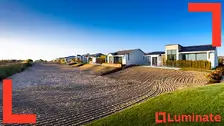Consultant Costs in Property Development: A Comprehensive Budget Guide for New Zealand
 By
Trent Bradley
·
9 minute read
By
Trent Bradley
·
9 minute read
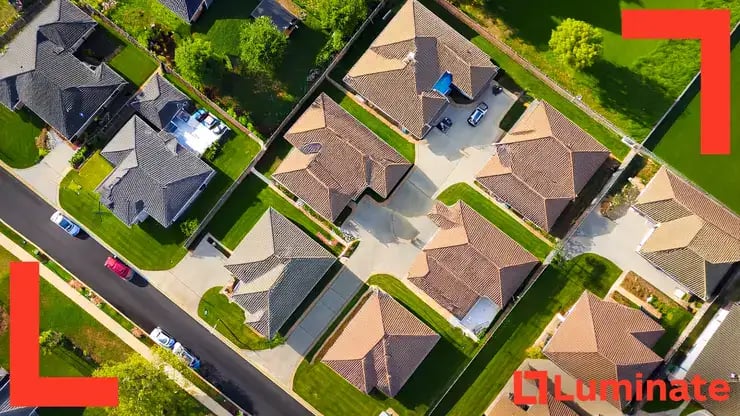
Professional consultant costs represent a significant investment in New Zealand property development, typically comprising 15-25% of total development costs across planning, design, engineering, legal, and specialist services. Understanding consultant costs, fee structures, and optimization strategies enables accurate project budgeting while ensuring quality professional input that supports successful development outcomes. This detailed guide provides comprehensive analysis of consultant costs across all professional disciplines with practical strategies for cost management and value optimization.
Understanding Consultant Cost Structures
Property development consultant costs involve complex structures reflecting different professional disciplines, service types, and project characteristics requiring systematic analysis and budget planning.
Total Cost Magnitude: Professional consultant costs for typical New Zealand developments range from $80,000-$200,000 for straightforward residential subdivisions to $300,000-$800,000+ for complex mixed-use or commercial projects. Cost magnitude reflects project complexity, regulatory requirements, and professional coordination needs.
Cost Components: Consultant costs comprise multiple components including application preparation, technical design, project management, legal services, and ongoing support throughout development phases. Component understanding helps detailed budgeting and cost allocation across development stages.
Fee Structure Types: Consultants use various fee structures including hourly rates, fixed fees, percentage-based fees, and hybrid arrangements. Understanding different structures helps optimize cost management while ensuring appropriate risk allocation and service quality.
Payment Timing: Consultant payments typically require upfront engagement fees, progress payments throughout service delivery, and final payments upon completion. Payment timing affects project cash flow requiring careful planning and working capital management.
Variation Management: Scope changes and additional services create cost variations requiring systematic management and authorization. Variation control prevents cost overruns while maintaining project flexibility and professional relationships.
Regional Variations: Consultant costs vary significantly across New Zealand regions reflecting different market conditions, competition levels, and cost structures. Regional understanding helps benchmark costs while optimizing professional selection strategies.
Planning Consultant Costs
Resource management planning represents a critical professional service with costs varying significantly based on application complexity and processing requirements.
Consent Application Preparation: Planning consultant fees for subdivision consent applications typically range from $25,000-$60,000 for straightforward projects extending to $80,000-$200,000+ for complex discretionary applications requiring extensive consultation and specialist coordination. Application costs reflect complexity, council requirements, and processing duration.
Hourly Rate Structures: Planning consultants typically charge hourly rates ranging from $150-$350 per hour depending on experience level, firm reputation, and specialization. Hourly arrangements provide flexibility but require careful budget monitoring and scope control.
Fixed Fee Arrangements: Some planning consultants offer fixed fees for defined scopes providing cost certainty while requiring clear scope definition and variation procedures. Fixed fees typically range from $20,000-$80,000 depending on project complexity and included services.
Pre-Application Services: Pre-application consultation typically costs $3,000-$15,000 depending on engagement scope and council coordination requirements. Pre-application investment often reduces formal application costs through early issue identification and resolution.
Hearing Representation: Planning representation at consent hearings typically costs $15,000-$50,000 including preparation, attendance, and expert witness coordination. Hearing costs represent significant contingency items for controversial applications.
Ongoing Support: Planning support during consent implementation including condition interpretation and variation applications typically costs $5,000-$20,000 depending on support scope and duration.
Value-Added Services: Additional planning services including strategic advice, policy interpretation, and development strategy development typically cost $2,000-$10,000 depending on complexity and time requirements.
Architectural and Design Costs
Architectural services provide design leadership for building developments with costs varying based on project scale, complexity, and service scope.
Residential Design Services: Residential architectural services typically cost 4-8% of construction value for standard projects extending to 8-12% for complex or prestigious developments. Percentage-based fees align architect interests with project quality while providing cost predictability.
Commercial Architecture: Commercial architectural services typically cost 5-10% of construction value reflecting additional complexity, regulatory requirements, and coordination needs. Commercial fees often include more extensive documentation and compliance management.
Concept Design Phase: Initial concept design typically costs $15,000-$50,000 for residential projects and $30,000-$100,000+ for commercial developments depending on scale and complexity. Concept investment enables design exploration while supporting feasibility assessment and consent applications.
Detailed Design and Documentation: Comprehensive design development and construction documentation typically costs 60-70% of total architectural fees. Detailed documentation ensures construction quality while supporting regulatory compliance and cost control.
Construction Phase Services: Architectural construction phase services including site observation, contractor coordination, and quality verification typically cost 20-30% of total fees. Construction services ensure design intent achievement while supporting quality outcomes.
Interior Design: Interior design services for commercial and residential projects typically cost $80-$200 per square metre depending on fit-out complexity and specification levels. Interior design enhances market appeal while supporting premium positioning strategies.
Urban Design: Urban design services for large-scale developments typically cost $20,000-$80,000 depending on project scale and design complexity. Urban design supports regulatory approval while enhancing development quality and community integration.
Engineering Consultant Costs
Engineering services provide essential technical design and construction support with costs varying by discipline and project requirements.
Civil Engineering Services: Civil engineering for subdivision infrastructure typically costs $30,000-$80,000 for simple projects extending to $100,000-$300,000+ for complex subdivisions with extensive infrastructure. Civil costs reflect design complexity, infrastructure scope, and construction oversight requirements.
Structural Engineering: Structural engineering for building projects typically costs 1-3% of construction value depending on structural complexity and material types. Structural fees cover design, documentation, and construction phase services.
Geotechnical Investigation: Geotechnical services including site investigation, testing, and foundation recommendations typically cost $8,000-$25,000 for standard investigations extending to $20,000-$50,000+ for complex sites or challenging conditions.
Services Engineering: Mechanical, electrical, and plumbing engineering typically costs 2-4% of construction value for commercial buildings and 1-2% for residential developments. Services engineering ensures adequate infrastructure while supporting energy efficiency and regulatory compliance.
Hydraulic Engineering: Stormwater and drainage engineering for subdivisions typically costs $15,000-$50,000 depending on system complexity and environmental requirements. Hydraulic engineering ensures adequate drainage while meeting environmental protection standards.
Traffic Engineering: Traffic impact assessments and access design typically cost $8,000-$25,000 for standard subdivisions extending to $20,000-$50,000+ for large developments or complex traffic situations.
Construction Phase Services: Engineering construction monitoring including inspections, testing coordination, and compliance verification typically costs 20-40% of total engineering fees depending on project complexity and monitoring requirements.
Survey and Measurement Costs
Licensed cadastral surveying provides essential boundary definition and title creation services with costs reflecting technical complexity and accuracy requirements.
Subdivision Surveys: Standard subdivision surveys typically cost $15,000-$40,000 for simple 2-4 lot subdivisions extending to $50,000-$150,000+ for complex multi-lot developments. Survey costs reflect lot numbers, boundary complexity, and infrastructure requirements.
Topographical Surveys: Site topographical surveys for design development typically cost $5,000-$15,000 for standard sites extending to $10,000-$30,000+ for large or complex sites requiring extensive detail.
Construction Set-Out: Construction setting out services typically cost $5,000-$20,000 depending on project complexity and accuracy requirements. Set-out services ensure construction accuracy while supporting quality outcomes.
As-Built Surveys: As-built documentation for completed infrastructure typically costs $3,000-$12,000 depending on infrastructure complexity and documentation requirements. As-built surveys provide council compliance while supporting ongoing maintenance.
Monitoring Surveys: Construction monitoring and deformation surveys for retaining structures or sensitive locations typically cost $2,000-$8,000 per monitoring event depending on scope and accuracy requirements.
Title Survey Services: Final subdivision surveys for title creation including plan preparation and LINZ coordination typically cost $8,000-$25,000 depending on subdivision complexity and title numbers.
Legal and Advisory Costs
Legal services provide essential regulatory compliance, contractual protection, and risk management throughout development processes.
Property Development Legal: Legal services for development projects typically cost $10,000-$30,000 for straightforward projects extending to $50,000-$150,000+ for complex developments involving joint ventures or challenging regulatory issues.
Consent Legal Support: Legal advice on consent applications including condition review and appeal support typically costs $5,000-$20,000 depending on complexity and involvement scope.
Contractual Documentation: Contract preparation including construction contracts, professional agreements, and partnership documentation typically costs $8,000-$25,000 depending on complexity and negotiation requirements.
Conveyancing Services: Property purchase and sale legal services typically cost $2,000-$8,000 per transaction depending on transaction complexity and title issues.
Dispute Resolution: Legal services for dispute resolution including mediation support and litigation typically cost $15,000-$80,000+ depending on dispute complexity and resolution method.
Ongoing Legal Support: Retainer arrangements for ongoing legal advice typically cost $3,000-$12,000 monthly providing priority access and cost predictability for active developers.
Specialist Consultant Costs
Various specialist consultants provide technical expertise for specific development aspects and site conditions.
Ecological Assessment: Ecological surveys and impact assessments typically cost $5,000-$20,000 for standard investigations extending to $15,000-$40,000+ for sites with significant ecological values requiring detailed mitigation design.
Acoustic Consulting: Noise impact assessments and acoustic design typically cost $5,000-$15,000 for standard projects extending to $10,000-$30,000+ for complex acoustic environments or challenging mitigation requirements.
Contamination Assessment: Contaminated site investigations typically cost $5,000-$15,000 for preliminary assessments extending to $20,000-$80,000+ for sites requiring detailed investigation and remediation design.
Archaeological Services: Archaeological assessments typically cost $3,000-$12,000 for standard surveys extending to $15,000-$40,000+ for sites requiring detailed investigation and iwi consultation coordination.
Heritage Consultancy: Heritage assessments for developments affecting heritage structures or areas typically cost $5,000-$20,000 depending on assessment complexity and conservation planning requirements.
Landscape Architecture: Landscape design services typically cost $8,000-$30,000 for subdivision landscaping and $15,000-$60,000+ for commercial developments requiring comprehensive landscape design and documentation.
Quantity Surveying: Cost estimation and value management services typically cost $3,000-$12,000 for standard developments providing valuable feasibility validation and cost control support.
Project Management Costs
Professional project management provides coordination and delivery oversight with costs reflecting project complexity and management scope.
Development Management: Comprehensive project management typically costs 3-8% of total development costs depending on project complexity and management scope. Project management provides coordination value while improving timeline efficiency and quality outcomes.
Consent Management: Specialized consent coordination services typically cost $15,000-$50,000 for complex consent processes requiring intensive professional coordination and council liaison.
Construction Management: Construction phase management typically costs 4-10% of construction value depending on project complexity and monitoring requirements. Construction management supports quality outcomes while managing contractor coordination and compliance verification.
Value-Add Services: Additional project management services including procurement support, stakeholder coordination, and risk management typically cost $5,000-$25,000 depending on scope and project requirements.
Cost Optimization Strategies
Strategic approaches to consultant cost management can significantly reduce expenses while maintaining quality outcomes and regulatory compliance.
Early Engagement: Early consultant engagement enables efficient project planning and often reduces total costs through issue identification and coordinated solution development. Early investment typically delivers significant returns through improved outcomes and timeline efficiency.
Competitive Tendering: Obtaining competitive quotes from multiple consultants helps benchmark costs while ensuring market competitiveness. Competitive approaches should balance cost considerations with quality assessment and relationship factors.
Scope Clarity: Clear scope definition prevents cost variations and disputes while ensuring comprehensive service provision. Scope clarity requires detailed discussion and documentation of service expectations and deliverables.
Integrated Teams: Coordinated consultant teams often deliver better value than individual appointments while reducing duplication and coordination overhead. Team integration requires clear leadership and communication protocols.
Value Engineering: Regular value engineering reviews help optimize cost-benefit relationships while maintaining quality outcomes. Value engineering should consider long-term value rather than simple cost minimization.
Technology Utilization: Modern technology including BIM, digital platforms, and automated processes can reduce consultant costs while improving quality and coordination. Technology investment requires professional competence while delivering efficiency benefits.
Long-term Relationships: Ongoing consultant relationships often provide preferential pricing and priority service while reducing coordination overhead and building trust. Relationship investment delivers ongoing value across multiple projects.
Regional Cost Variations
Consultant costs vary significantly across New Zealand regions reflecting different market conditions, competition levels, and professional availability.
Auckland Consultant Market: Auckland represents the highest-cost consultant market with typical costs 20-50% above provincial markets reflecting high demand, sophisticated projects, and competitive professional market. Auckland costs often reflect superior expertise and capability access.
Wellington Region Costs: Wellington region consultant costs typically fall 10-30% above provincial markets reflecting professional sophistication and specialized expertise in earthquake resilience and heritage projects.
Canterbury Costs: Canterbury consultant costs typically align with national averages reflecting competitive markets and post-earthquake capacity development. Canterbury offers good value while maintaining quality standards.
Provincial Center Costs: Provincial cities typically offer 10-30% lower consultant costs compared to Auckland while maintaining professional competence and quality standards. Provincial markets often provide better value for standard projects.
Rural and Remote Areas: Rural areas may experience higher consultant costs due to travel requirements and limited local availability despite lower base rates. Rural projects require premium pricing for professional travel and accommodation.
Budgeting and Cash Flow Planning
Effective consultant cost budgeting requires comprehensive planning and systematic cash flow management throughout development periods.
Comprehensive Budgeting: Development budgets should include all consultant costs with appropriate contingencies for variations and additional requirements. Budget development requires professional input and realistic cost assessment.
Phased Cost Allocation: Consultant costs should be allocated across development phases including planning, design, construction, and completion enabling accurate cash flow planning and funding arrangements.
Contingency Provision: Consultant cost budgets should include contingencies of 10-20% for variations, additional services, and processing complications. Adequate contingencies prevent cash flow problems while ensuring project completion capability.
Payment Management: Consultant payment timing should be managed carefully considering cash flow requirements, service delivery milestones, and funding arrangements throughout development periods.
Cost Monitoring: Regular cost monitoring and reporting helps identify budget variations while enabling proactive cost management throughout consultant engagement periods.
Value Assessment: Consultant cost assessment should consider value delivery rather than simple cost comparison. Quality consultants often provide better overall value through improved outcomes and reduced risk exposure.
Working with Finance-Aware Consultants
Development finance providers with extensive consultant networks provide valuable guidance on cost management and professional selection throughout development projects.
At Luminate Finance, we understand that consultant costs represent essential development investments requiring systematic management and appropriate financing throughout development periods.
Our extensive experience across diverse development projects provides valuable benchmarking and cost validation helping developers prepare realistic budgets while identifying optimization opportunities and cost management strategies.
We regularly participate in consultant cost planning and management, providing guidance on budget development, professional coordination, and cost optimization that supports successful development outcomes within planned budgets.
Our comprehensive approach includes cost analysis, professional network access, and ongoing budget monitoring that aligns consultant investments with development objectives and financing arrangements.
Through our involvement in numerous development projects, we've developed deep understanding of consultant cost drivers and effective management strategies that optimize outcomes while controlling expenses throughout development processes.
Our network of professional relationships provides access to competitive professional services and cost-effective solutions while maintaining quality standards and regulatory compliance throughout property development.
Ready to optimize your development consultant costs with expert guidance? Contact Luminate Finance today to discuss how our comprehensive cost management expertise and extensive professional networks can support your development success through effective consultant cost control and strategic budget management.

Trent Bradley
Trent Bradley is a New Zealand financial advisor specializing in property-backed finance and investment consulting. With over 26 years of experience running his mortgage broking business, he has helped wholesale investors access high-yield property-backed loan opportunities. For the past 12 years, Trent has led Luminate Finance, a New Zealand finance company dedicated to connecting investors with secure property investment solutions.


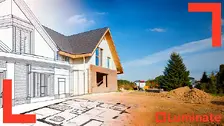


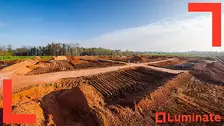












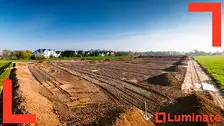
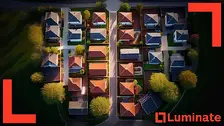







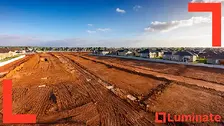

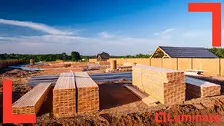



.png?//48413319.fs1.hubspotusercontent-ap1.net/hubfs/48413319/Featured%20images%20(14).png&width=247&height=126&name=Featured%20images%20(14).png)


